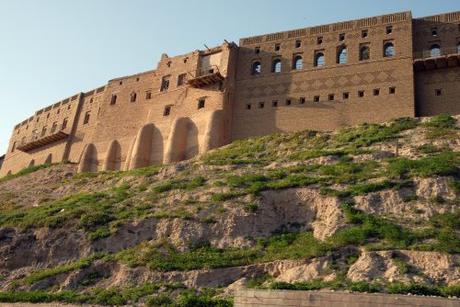
“Then Cain went out from the presence of the LORD, and settled in the land of Nod, east of Eden. Cain had relations with his wife; and she conceived, and gave birth to Enoch; and he built a city, and called the name of the city Enoch, after the name of his son.” (Genesis 4:16-17)
So, after God passed sentence on Cain and laid out what his punishment would be for killing his brother, Abel, Cain departed from the presence of the Lord. This departure was both physical and spiritual. What we read in the next few verses is a perfect picture of mankind’s endeavors apart from God.
The very first thing that we see Cain doing after God has banished him from His presence is that he continues to defy God. God said that Cain would be a “vagabond in the earth” (Gen. 3:14), and that is exactly what the term “Land of Nod” means: the land of “wandering”, or the land of “vagrancy.” So, Cain does indeed become a wandering vagabond. But verse 17 tells us that he “built a city.” Apparently Cain still did not believe that God’s Words were true. Cain was attempting to establish a place of settlement, a place for him to find residence after God Almighty had decreed that he would never find such.
Cain called his first-born son “Enoch”, meaning “one initiated” or “one dedicated.” It spoke of a new beginning, a changing of a way of life. What a horrific contrast between Cain’s son and the man who shared the same name whom we meet in Genesis 5:21-24! The second Enoch was a man dedicated to the glory of the Lord while this Enoch was dedicated to the glory of man. The second Enoch was a model of those who would walk with God while this Enoch was a model of those who would live for themselves.
Cain began a trend that would repeat itself throughout history as he named the city he set about to build after his son, calling it “Enoch”, as well. Mortal flesh has the innate desire to preserve its name and legacy for posterity, fearing that our names will not be remembered and our lives forgotten. The word translated as “built” in verse 17 denotes a sense of repairing, fixing, or continuing to build something. It is not generally associated with a completed project. Perhaps Cain’s efforts to complete the construction of his “city” were so thwarted, as God’s judgment was upheld, that he dared not assign his own name to the city he himself was perpetually building. His hope laid in his son carrying on his legacy. And, sadly, it seems that he and the rest of his descendants certainly did.
“I have seen all the works that are done under the sun; and indeed, all is vanity and grasping for the wind.” (Ecclesiastes 1:14 NKJV)
We are not told very much about Enoch, Irad, Mehujael, and Methusael, but we are given a little more detail about the fifth and sixth generations after Cain. Jubal, Jabal, and Tubal-Cain, the sons of Lamech and grandsons of Methusael, are credited as the “fathers” of animal husbandry, music, and metallurgy, respectively. Sometimes, as Christians, we have the tendency to underestimate what unredeemed mankind is indeed capable of accomplishing. While some of the most distinguished institutions of higher learning and some of the most prestigious medical facilities in the world were, in fact, originally dedicated to the glory of God and founded in His name, many were not. While the Word of God certainly teaches us that nothing that is done apart from God shall last, we are never told that humanity is incapable of monumental accomplishments on their own.
The descendants of Cain doubtlessly constructed impressive monuments, composed beautiful music, and possessed great herds of livestock. From the outward appearance, these people would have seemed to be getting along just fine without God. But, as we see in the chapters of the Book of Genesis that follow, these people were not really doing as well as they thought they were.
From God’s perspective, Cain’s descendants lived, had children, set about their business, and then died. They are very briefly even mentioned in the Word of God before the narrative returns in verse 25 to the lineage through which Christ would come. So it is for all who would separate themselves from the presence of God and choose to “dwell in the land of Nod.” Regardless of what they might accomplish in this life, only that which is done for the glory of Jesus Christ will truly last. Though they name great cities after themselves, though they found majestic halls of learning and commission magnificent monuments to be built in their own name; those who die apart from Christ will perish in their sins and spend eternity separated from the presence of God. Their only achievements will forever perish.
To Jesus Christ goes all glory. In service to Him,
Loren
[This post was originally published September 23, 2009]
[If you do not know the Lord Jesus Christ or you are not certain where you are headed when this life ends, I invite you to read the article “Am I Going To Heaven?“]
**Unless otherwise indicated, all Scripture quotations are taken from the New American Standard Bible (NASB) © The Lockman Foundation and are used by permission.
*New King James Version (NKJV)Copyright © 1982 by Thomas Nelson, Inc. Advertisements